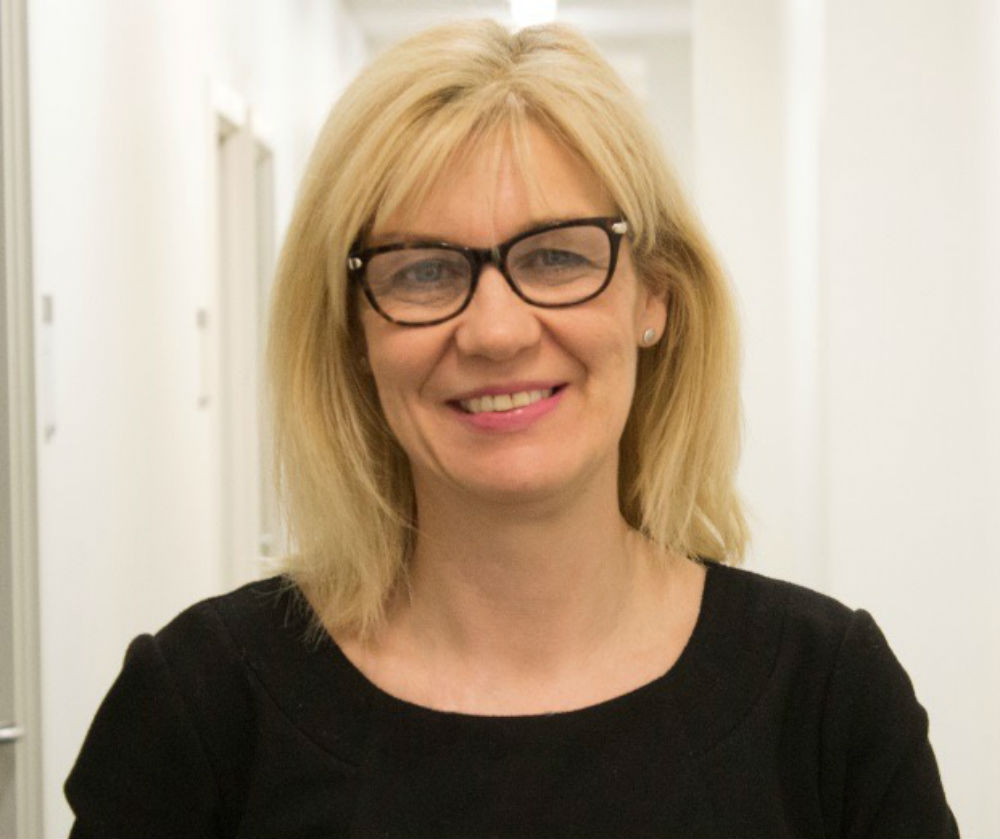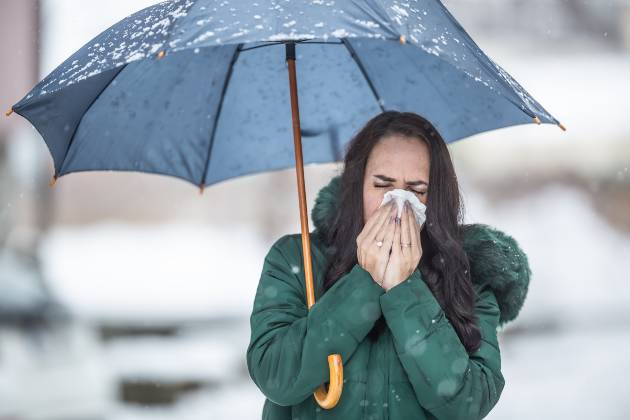Paul Hanna, Nursing in Justice and Forensic Health Forum Committee Vice Chair, says he is proud of how the teams he works with have come together during the pandemic and that kindness has been key in overcoming some of the challenges
I’m based at Ty Llywelyn, which is a 25-bed medium secure hospital in North Wales. As Head of Nursing for Regional Specialist Services at Betsi Cadwaladr University Health Board, I support forensics, rehab and commissioned care.
COVID-19 has had a major impact, particularly in secure settings and prisons. Our focus has been running as normal a service as possible but understanably we’re in unique times.
Our referral rate has stayed the same – perhaps even slightly increased – as people experience high levels of anxiety.
We’re prioritising patients, so despite COVID-19, if someone who is acutely unwell needs to come to hospital, people are collaborating to make that happen safely.
Some patients would usually have leave in the community, but this has had to be reviewed.
If we’re kind things become that bit easier
We have increased activities on wards and a garden where patients can grow vegetables and use gym equipment.
Because we had to stop visits to reduce COVID-19 risk, we’ve been creative around communication.
Secure units have certain restrictions, but we’ve been able to help patients and families stay in contact via Skype.
It’s important for families that we communicate what we’re doing and why, and enable them to ask us questions. It helps to reassure them.
Things have moved at real pace, but people have understood the severity of the situation and have been flexible, resilient and kind to each other.
If we’re kind, no matter how difficult things are, things become that bit easier. It’s made me so proud of my profession and the teams I work with.
We now need to focus on supporting patients, families and staff emotionally with their experiences of COVID-19.
Emma Mills is a consultant midwife and RCN Wales Nurse of the Year Children and Midwifery Award winner 2019. She says she is proud of the way her colleagues have supported families through this crisis
Women don’t stop having babies during a pandemic and their needs now are as important as their needs at other times.
Within our health board I have seen midwives and maternity services staff adapt rapidly and professionally to huge changes and challenges.
This includes moving wards, following redrafted guidelines that change every few days in line with national guidance, spending long hours in PPE, often redeployed to other areas, learning new skills at short notice, and thinking of innovative ways of working.
Central to this is supporting women who are frightened at an uncertain time and trying to stay positive when it should be one of the most special times of their lives.
I have no doubt that the majority of midwives and maternity services staff would have wanted to be at home with their own families.
We all have young children, or elderly parents, family members with underlying health problems or just people we want to protect.
Many of our staff members have lost relatives or friends to COVID-19. And yet everyone adapted so willingly and quickly to change with such passion, kindness and commitment.
These challenging times have been a reminder of our privilege and our strength and I am so proud and grateful to work with such wonderful colleagues, and the families we support.
Women’s Health Forum committee member Ruth Bailey is a nurse team leader at a sexual and reproductive health clinic. She believes nurses are very good at adapting to new and challenging situations
Since the pandemic, around 70% of my colleagues in sexual and reproductive health have been redeployed.
For the past six weeks, I’ve been working on an elderly care ward, which has been a massive shock to the system as I’ve not worked on wards for more than 20 years.

For the core team left in sexual health it’s business as usual over phone or video consultations for things like contraception or STI testing.
As we head out of the lockdown, the service is starting to pick up. There’s a big focus on coronavirus, and rightly so, but many people are still at risk of STIs, unwanted pregnancy and sexual assault.Many people are still at risk of STIs, unwanted pregnancy and sexual assault
Some are at an increased risk of domestic abuse and these are patients we routinely screen, so if we’re not seeing them this makes it harder to see if there’s something wrong and that’s a worry.
It’s a challenging time but my personal belief is that nurses are good at learning new skills and ways of working.
We all have a fundamental skill set, and although this may be a bit rusty, our education, training and ability to adapt has really helped us all in the current crisis.
Eyes may not be high on the government’s list of priorities, but things could get significantly worse now for ophthalmic patients and have devastating mental and physical health consequences, explains Dr Penelope Stanford, RCN Ophthalmic Forum Chair
The pandemic has led to ophthalmic nurses using their skills as part of the redeployed workforce.
Non-urgent ophthalmic care has had to be put on hold. This is worrying. People were already on long waiting lists for cataract extractions and other types of surgery and the pandemic is exacerbating this situation.
But other ophthalmic care is continuing. Injections to treat macular degeneration, for example, are essential as they prevent people from losing their sight.

However, social distancing measures are proving challenging in many ways, and some members of the forum have told me that access to PPE is still a problem.
Conjunctivitis is listed as a symptom of COVID-19, and we work extremely closely to peoples’ eyes and faces.
Even with breath shields in place, we’re having to consider the theoretical chance of COVID-19 infection transmission through tears.
Social distancing measures are proving challenging in many ways
The pandemic has to take priority but without treatment for people waiting for cataract and other ophthalmic surgery there could be other far reaching consequences.
Without surgical ophthalmic intervention, visual impairment from cataracts means people can be susceptible to falls and the possibility of bone fractures.
Social isolation was already a challenge for many people with sight loss.
I’ve read on social media that people with sight loss have been verbally abused in the street for accidently touching someone with their mobility canes they’re using to help them move around, or for bumping into someone in a shop as they cannot judge the social distance.
But whatever challenges this pandemic has brought, it’s proved that ophthalmic nursing staff apply critical thinking and share their ophthalmic knowledge to ensure they can adapt to the current challenging conditions.
Some specialist rheumatology services are trying to provide a reduced service with their remaining workforce, says Chair of the RCN Rheumatology Forum Julie Begum
Many of our patients are on immune-modulating medication which requires them to self-isolate or shield so rheumatology departments were asked by Public Health England, via the British Society of Rheumatology, to help identify patients in these at-risk groups.

With many services not having easily accessible databases to get this information this was a big team effort over the Easter weekend to meet the tight deadline set.
Telephone advice lines into rheumatology departments have been especially busy, providing, for some, their only access to their specialist team.
Questions have ranged from how people could get their routine blood monitoring completed for their medication without putting themselves at risk, to how to cope with a flare of symptoms without having to come to the hospital.
We’ve shown flexibility in the way we work and deliver our services
Getting recognition and payment for the nursing resource needed to run a daily telephone advice line service, with advice and guidance work being completed by rheumatology nurses, has been a struggle for the specialty for some time.
Events like this pandemic really show what an essential core service this really is that needs to be staffed and funded correctly.
But there have been positives too. We’ve shown flexibility in the way we work and deliver our services. We’ve embraced new technologies too.
The step to video consultations has meant we’ve had to organise training on a new platform, buy equipment, set up web cams in clinic rooms and help patients navigate the system.
There will be a time, when we are through the worst of this pandemic, to redesign services to improve patient experience and reduce the strain on this mostly outpatients-based specialty.
The rheumatology nursing voice will be an integral part of this redesign.








